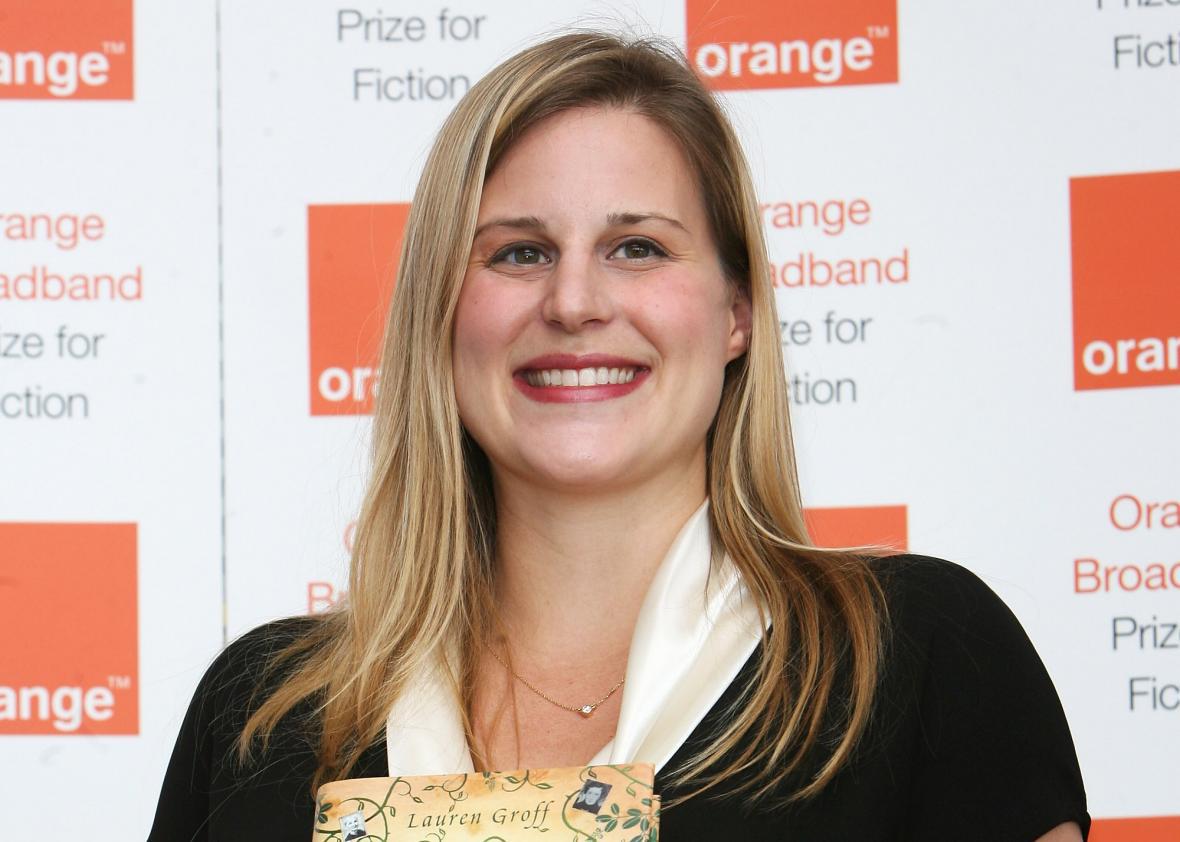In a recent New Yorker online interview, fiction writer Lauren Groff argues against asking women how they balance parenthood and their careers. Explaining the inspiration for her new short story about an ambivalent (and mildly incompetent) mother, Groff muses on her own feelings of ambivalence and mild incompetence as a parent. She then gets into the subsequent frustration that having such feelings produced, which led to a completely justifiable fury over our culture’s tired assumptions about the way mothers are supposed to feel. Here’s the full quote:
I’d made the decision before the boys were born that I was going to feel no guilt or shame about my parenting. I’m a good mother and want to spend as much time as possible with my kids, but I travel a lot, I shut myself away from my family to work every day, I do not do birthday parties, and I went to one play-date in my life and wanted to break the Perrier bottle on the floor and stab myself with it. We have intense conversations in my house about apportioning responsibility, because neither my husband nor I wants to assume roles based on messed-up collective assumptions about gender dynamics. I think that, in our society, the idea of motherhood is pathologically ill, and even well-meaning people assume martyrdom in a mother. Guilt and shame are the tools used to keep people in line; the questions I get most at readings or in interviews are about being a mother and writer, when I’m expected to do this this sort of tap dance of humility that I have no desire or ability to dance. I think people are mostly kind and don’t know that, when they ask these questions of women, they are asking us to perform a kind of ceremonial subjection—that we’re not allowed our achievements without first denigrating ourselves or saying, with a sigh, “Yes, that’s correct, I’m a writer and a mother, and it’s so hard, and, no, I don’t do it well.”
She continues:
The truth is, doing these things is hard because being a good parent is always hard, but the difficulty of parenting is separate from the difficulty of work. My children are very happy, smart, funny, wonderful, and their father is an extraordinary nurturer: they are missing out on nothing. This is to say that, for a long time, conflicting ideas about motherhood and all its attendant expectations were eating me up from the inside and I needed to write something about it.
As Groff points out, people generally mean well when they ask women how they balance family and their career. Some queries are practical: Many people are innocently curious about how exactly a successful woman schedules her time and to what degree it’s dependent on having a supportive partner or outside help. Others’ interest is rooted in more creative, even spiritual, concerns: They want to hear a wise women share her experience of the relationship between caretaking and artmaking—a topic that has, all things considered, only just begun to be explored. These are both reasonable questions, and a good answer can do a lot toward making working moms feel less alone in their struggles, as well as helping them identify any systemic impediments that are getting in their way.
Still, we’ve got to be far more thoughtful about asking these questions because, as Groff explains, each time we do so we perpetuate assumptions about motherhood that would be better left behind. These include the notion that the relationship between motherhood and work is inevitably about hard choices and sacrifice, and, perhaps more insidiously, the notion that a relationship between motherhood and work exists at all. (Many of us work and parent, and don’t view them as a zero sum game. I write about motherhood for a living, and, still, I don’t see them as a zero sum game.) This is the assumption that needs to be extracted from our conversations about motherhood, the one that irritates Groff—and makes some women feel busier than they actually are.
Of course, this doesn’t mean we should go back to the time when ambitious women avoided talking about motherhood, or, worse, having children, lest they be seen as unserious. I love to hear interesting women unpack their experience of motherhood. I loved reading Groff unpack hers. (The line about the Perrier bottle is an iridescent pearl of an anecdote.)
Perhaps the trick is to keep asking women about motherhood, but not place it in the context of their careers. Instead, treat it like any other biographical detail, like growing up in the South or having a severe peanut allergy—one that may or may not intersect with a woman’s professional life, and one about which she may or may not have something to say. If such an inquiry prompts her to expound on balancing career and family, great. Just let her be the one to bring it up.
